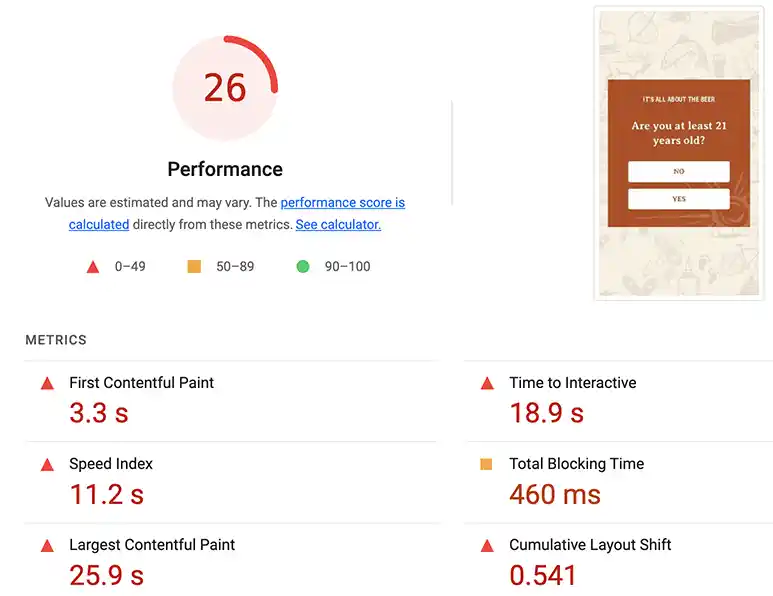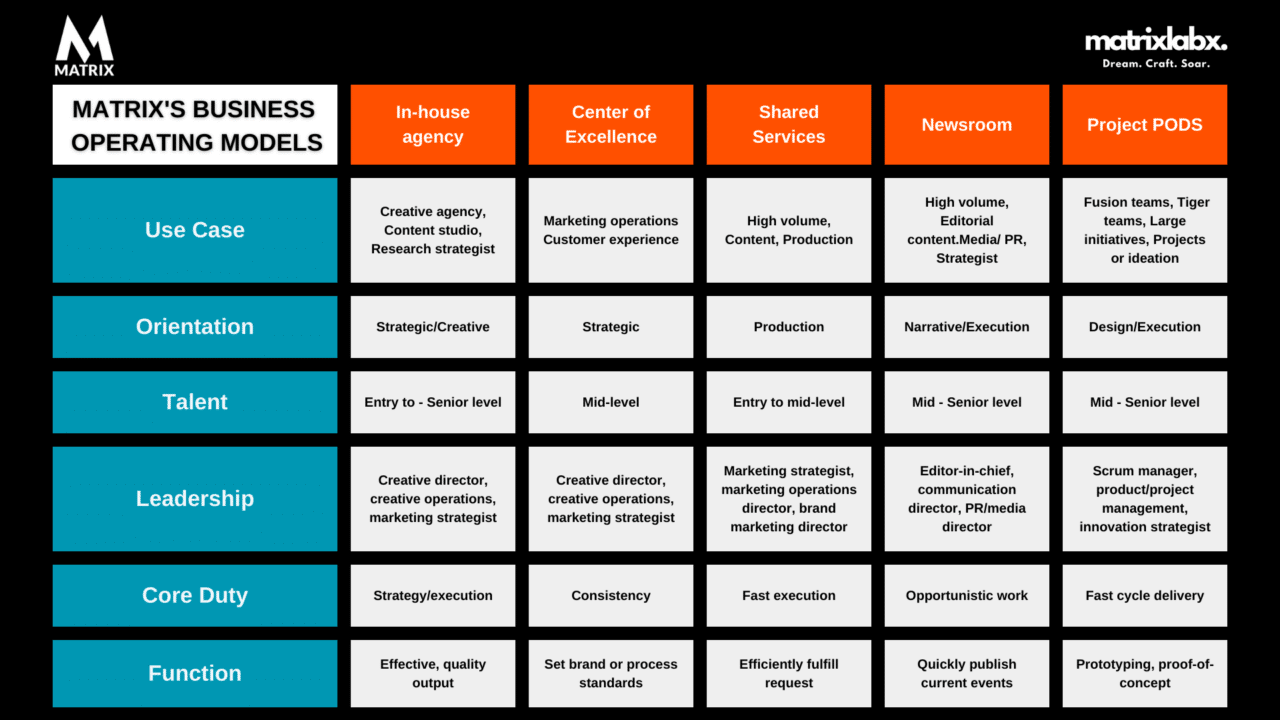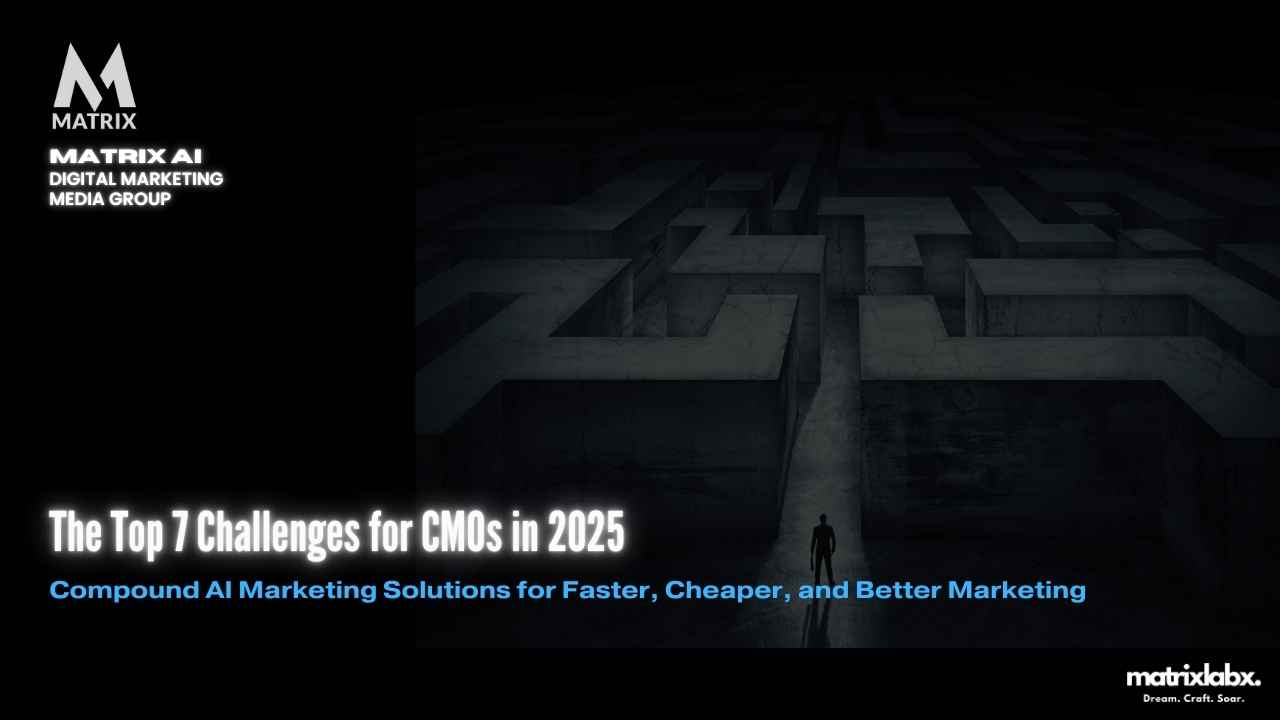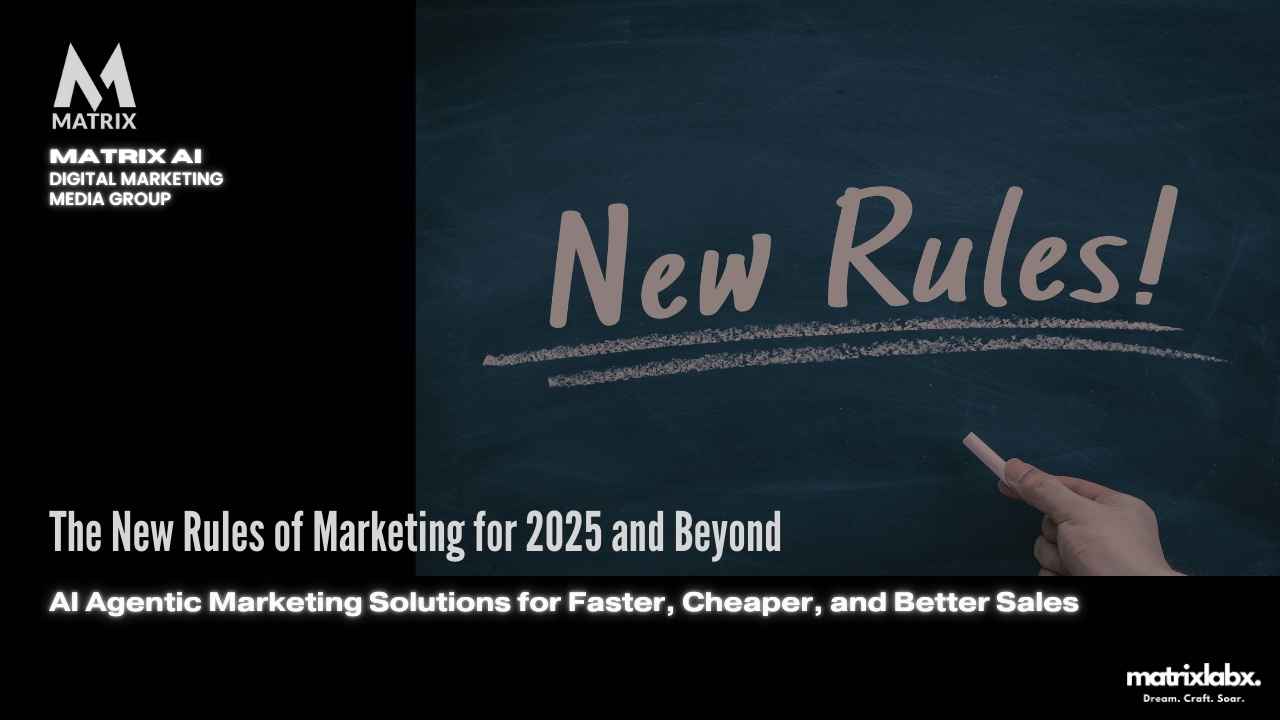The New Rules of Marketing for 2025
Learn About The New Rules of Marketing: Navigating the Evolving Landscape
How about hiring some marketing staff? How much should I budget for a staff of five?
What can be automated with new AI agentic marketing systems?
You can read about how AI is not replacing jobs but changing the dynamics and roles of people in their jobs in all the major journals.
I agree that this might be true for some percentages, but the little secret is that the workforce will be significantly reduced.
The Cost of Traditional Marketing Roles vs. OrchestraAI: A Comprehensive Analysis
A common approach for businesses aiming to maximize their marketing efforts is to assemble a traditional team of professionals, such as an SEO Manager, Content Manager, Social Media Manager, and Marketing Director.
However, this method comes with significant financial and operational challenges. AI agentic systems like OrchestraAI offer an alternative, automating key processes and delivering robust results at a fraction of the cost.
This report examines the financial burden of traditional roles compared to the cost-effectiveness of OrchestraAI, providing specific cost comparisons.
Traditional Marketing Roles: Full Burden Labor Costs
Hiring a comprehensive marketing team involves substantial expenses beyond base salaries. Full burden costs include payroll taxes, benefits, equipment, and training, often adding 20-30% to base compensation. Here’s a breakdown of annual costs for a typical marketing team:
SEO Manager
Base Salary: $80,000
Full Burden Cost (25% additional): $100,000
SEO Managers are responsible for driving search visibility through optimization techniques, yet their workload often requires manual intervention, making this role time-intensive and costly.
Content Manager
Base Salary: $70,000
Full Burden Cost (25% additional): $87,500
Content Managers oversee the production pipeline, but the demand for high-quality and consistent output can create bottlenecks, increasing dependency on additional resources.
Social Media Manager
Base Salary: $65,000
Full Burden Cost (25% additional): $81,250
Managing multiple social media platforms requires constant monitoring, community engagement, and campaign execution, leading to significant time and resource investment.
Marketing Director
Base Salary: $120,000
Full Burden Cost (25% additional): $150,000
Marketing Directors are the strategic backbone of the team, yet their ability to deliver depends on the efficiency of team operations and accurate reporting.
The annual Labor Cost for a Traditional Marketing Team $418,750
While this team brings expertise and human creativity, the high costs and scalability challenges can be prohibitive for many businesses.
70% of agencies need help integrating AI solutions.
70% of agencies need help integrating AI solutions into their tech stack, citing a lack of interoperability as a major barrier. 85% of marketing agencies need more in-house expertise to manage and deploy multi-AI agent systems effectively.
OrchestraAI: A Cost-Effective Alternative
In contrast, OrchestraAI offers a comprehensive AI-driven system that automates SEO, content creation, social media management, and campaign analysis.
Unlike traditional roles, it operates without requiring salaries, benefits, or training.
Here’s a breakdown of its cost:
- Annual Subscription Fee for OrchestraAI: $100,000 (including software updates and support)
- Full Burden Cost: $100,000 (no additional expenses)
ROI = 318.8%. Not bad!
OrchestraAI provides round-the-clock operations, eliminating downtime, and scales effortlessly to handle increasing workloads.
Its machine-learning capabilities ensure continuous adaptation to changing algorithms and market trends without manual intervention.
Your Blueprint for SEO Success in 2025
Whether you’re a business owner, marketer, or seasoned SEO professional, this guide is tailored to give you a competitive edge in the evolving digital landscape. Get SEO Pricing.
Financial Impact of Transitioning to OrchestraAI
Switching from a traditional marketing team to OrchestraAI could save businesses approximately $318,750 annually.
These savings can be reinvested into strategic initiatives, additional marketing campaigns, or technological advancements.
Moreover, OrchestraAI enhances operational efficiency by eliminating human errors and providing real-time insights that traditional teams often cannot match.
For instance, OrchestraAI automates tasks like keyword research, content generation, and social media scheduling, which traditionally require hours of human effort.
This efficiency reduces costs and ensures faster turnaround times, allowing businesses to respond to market opportunities more effectively.
While a traditional marketing team provides the human creativity and strategic oversight necessary in certain contexts, it carries considerable financial and operational burdens.
OrchestraAI presents a compelling alternative, enabling businesses to achieve similar or superior results with significantly lower costs.
For organizations seeking to optimize their marketing budgets without compromising performance, OrchestraAI offers a scalable, cost-effective solution that redefines marketing operations.
| Aspect | Traditional Marketing | AI Agentic Systems (e.g., OrchestraAI) |
| Labor Costs | High (multiple full-time roles with benefits) | Low (single subscription fee) |
| Scalability | Limited by team size and bandwidth | Highly scalable with no additional labor costs |
| Efficiency | Dependent on manual efforts | Automated and highly efficient |
| Customization | Requires skilled personnel for customization | Automated, with easy-to-configure options |
| Consistency | Prone to human error and inconsistencies | Uniform output across channels |
| Data-Driven Insights | Requires manual data analysis and reporting | Real-time insights and analytics |
| Cost-Effectiveness | Expensive due to salaries and operational costs | Significantly lower costs compared to traditional methods |
| Adaptability | Slow to adapt to market changes | Quick adaptation through machine learning |
| Time to Execution | Weeks to months for campaigns | Minutes to hours for campaign setup |
The Marketing Paradigm Shift: Are You Prepared?
The Skill Gap: Why 85% of Marketers Are Not Ready
The Skill Gap: Why 85% of Marketers Are Not Ready highlights the urgent need for upskilling in a rapidly evolving digital landscape. Advanced technologies like AI, data analytics, and automation are outpacing traditional marketing expertise, leaving most professionals unprepared to adapt and compete effectively.
Did you know that 76% of marketers say the marketing industry has changed more in the past two years than in the previous fifty?
As a marketing manager, you are at the forefront of this transformation, navigating a rapidly evolving landscape.
The digital revolution, accelerated by unprecedented global events, has rewritten the rules of engagement. It challenges traditional approaches and requires innovative strategies to stay ahead.
Evidence-Based Recommendations: Your Roadmap to Success
Consider integrating evidence-based practices into your marketing strategy to thrive in this new era.
Leverage analytics to understand customer behavior, utilize AI tools to personalize interactions, and prioritize authenticity to foster genuine connections.
Research shows that brands that are transparent and responsive to consumer needs are 2.5 times more likely to enjoy increased customer loyalty.
By adapting to these new rules, you can position your brand for success and future-proof marketing efforts.
This article will explore these strategies in greater depth, providing you with the tools and knowledge to excel in the dynamic world of modern marketing.
The New Rules of Marketing: A Definition
In today’s rapidly evolving marketplace, The New Rules of Marketing refer to innovative strategies and practices that leverage digital technology, social media, and data analytics to engage customers more effectively.
These rules reshape how businesses communicate value propositions, transforming traditional marketing efforts into dynamic, interactive experiences.
Affordable SEO Solutions That Drive Real Results
Matrix Marketing Group Delivers Customized SEO Strategies with Transparent Pricing for Maximum ROI. See SEO Services.
Why Embrace These New Rules?
The “why” behind this shift is compelling and crucial. Consumer behavior has changed dramatically.
People now expect personalized, real-time interactions and authentic engagement from brands.
The days of one-way marketing communications are over.
Now, marketing managers must harness the power of social media, algorithms, and data-driven insights to listen to their audiences, predict trends, and make informed decisions that maximize reach and impact.
Where Do These Changes Apply?
The new rules apply everywhere consumers make purchasing decisions, from the bustling digital epicenters of social media platforms to the more nuanced spaces of content marketing and email campaigns.
Marketing managers navigate these platforms, crafting tailored strategies that capture attention across multiple channels.
Embracing these changes ensures relevance and transforms challenges into opportunities, enriching customer relationships and driving brand success in an ever-competitive landscape.
Curiosity piqued? Dive deeper into how these rules can be applied in your next campaign, and witness the transformative power of modern marketing in action.
Are You Struggling with Poor Marketing ROI?

Uncovering the ROI Dilemma
As a marketing manager, you pour countless hours and resources into orchestrating campaigns, yet the results are not showing. Current marketing strategies often fail to deliver substantial ROI, draining budgets while missing targets.
Complex analytics, disjointed campaigns, and evolving customer preferences can make marketing seem like an unsolvable puzzle, leaving you stressed and your efforts flat.
The Consequences of Stagnant Strategies
Competitors swiftly capture your potential clients because their campaigns resonate more effectively. Your brand’s voice gets lost in the noise, sales numbers stagnate, and upper management’s concerns grow louder.
Underperforming marketing initiatives mean missed revenue opportunities and wasted resources. This cycle of inefficiency frustrates you and can lead to strategic setbacks and increased pressure to prove your department’s worth.
Introducing AI-Powered Marketing Solutions
Revolutionize Your Strategy with Cutting-Edge Technology
Why tread outdated paths when you can harness AI marketing solutions that architect precision and predict success?
Our innovative platform analyzes data patterns with unfathomable depth, tailoring personalized, real-time campaigns that yield remarkable ROI. AI-driven insights eliminate guesswork and elevate your strategy to meet consumer expectations effortlessly.
Turn inefficiencies into engagement, and watch your campaigns thrive as our solution empowers you to make data-backed decisions with unparalleled accuracy.
Shift from stagnancy to success—let our AI marketing solutions guide you towards rewarding results. Curiosity piqued? Connect with us to redefine your marketing potential today.
Exploring the Future with “The New Rules of Marketing”
Shifting from Lead Generation to Revenue Generation: A New Era for Marketing Managers
Unlocking 67% More Revenue: The Shift Every Marketing Manager Needs to Make
In today’s fast-paced digital landscape, marketing managers are bombarded with new strategies and tools claiming to revolutionize their approach. This statistic is not just a number—it’s a call to action for marketing leaders to reevaluate their strategies and realign their efforts with the bottom line. Schedule an appointment.
Insight from a Marketing Innovator
“In today’s fast-paced digital environment, George Schildge’s article ‘The New Rules of Marketing in the AI Era’ offers a refreshing perspective that every marketing manager must consider,” states marketing thought leader Amanda Weiss.
She continues, “What’s fascinating about George’s approach is his ability to adapt classic strategies to the modern landscape. By emphasizing real-time content delivery and audience engagement, George offers practical tactics that any brand can leverage to create meaningful connections with their customers.
His article is essential for staying ahead of the curve in the evolving world of digital marketing.
A Game-Changer for Modern Marketers
John Stevens, a seasoned marketing manager with over a decade of experience, shares his thoughts: “George’s framework is revolutionary.
His insights have significantly impacted how I approach marketing strategies in my role. The shift from traditional advertising to a more content-driven, customer-focused method is a game-changer for businesses seeking long-term success.
What makes ‘The New Rules of Marketing & PR’ truly stand out is its ability to integrate new digital tools seamlessly into existing marketing structures. It’s like having a roadmap to the future of marketing.”
Bridging Tradition and Innovation
Marketing expert and consultant Laura Chen adds her perspective: “George’s article perfectly bridges the gap between traditional marketing approaches and innovative digital techniques.
As someone who advises various companies on improving their marketing strategies, I’ve found that implementing The New Rules of Marketing principles in the AI Era results in remarkable improvements in customer engagement and brand loyalty.
It’s intriguing how the article challenges conventional wisdom while providing actionable solutions. This article is a must-read for any marketing manager looking to boost their brand’s presence in today’s digital ecosystem.”
Embracing the New Rules of Marketing

Personalization and Customer Engagement
The digital age has revolutionized traditional marketing methods, putting personalization and customer engagement at the forefront of marketing strategies.
Brands that understand their audience’s needs and preferences can curate tailored and unique experiences. Consider Herbalerie, an emerging organic skincare brand that uses AI to personalize its customers’ skincare routines.
Engaging with consumers directly through chatbots and personalized recommendations has created a sense of community and loyalty that keeps customers returning.
Storytelling and Authenticity
A compelling narrative can be more effective than direct advertising. The new marketing rules stress the power of storytelling and authenticity, allowing brands to connect emotionally with their audience.
Flow Threads, a sustainable fashion label, capitalizes on this by sharing the journey of its garments from fabric sourcing to manufacturing.
Its transparency about ethical practices engages socially conscious consumers and positions its brand as a leader in sustainable fashion.
Leveraging Micro-Influencers
Micro-influencers offer brands a targeted, authentic way to engage niche audiences without the hefty costs of macro-influencer campaigns.
Take BrewBuds, a unique craft coffee company that partnered with local coffee enthusiasts to showcase their products.
By choosing influencers whose followers already have a vested interest in artisanal coffee, they ensured genuine connections and deeper customer trust.
This strategy helped them gain a foothold in the competitive beverages market, exemplifying how even lesser-known brands can rise by creating authentic interactions within their community.
Adopting these new marketing rules can yield remarkable results in connecting with today’s savvy consumers.
Embarking on the Matrix: An Innovative Marketing Odyssey
In a world where traditional marketing methods are rapidly evolving, harnessing the potential of the digital realm is not just optional; it’s essential.
Enter the Matrix, a dynamic tool that merges technology and marketing.
Embrace the New Rules of Marketing by entering this immersive environment, where data-driven decision-making, strategic engagement, and creative innovation are at the core of every initiative.
85% of Web Pages Ranking in the Top 3 Will Feature Long-Form, AI-Augmented Content
Search engines will favor content that combines in-depth analysis with conversational tones, much of which will be AI-enhanced. AI-assisted research and writing tools will enable the creation of comprehensive, authoritative content at scale.
Understanding the Matrix: Beyond Conventional Strategies
The Matrix offers a comprehensive platform integrating AI, big data analytics, and virtual realities. This convergence enables marketers to craft personalized experiences with unprecedented precision.
Begin by familiarizing yourself with the digital ecosystems your target audience inhabits. Dive into data analytics to decipher preferences, behaviors, and interactions that can shape relevant, timely messages.
This analytical approach enhances your understanding of customer needs, guides informed decision-making, and ensures that your strategies are agile and effective.
Implementing a Matrix-Driven Vision
Developing an actionable plan is crucial for effectively leveraging the Matrix. Start by identifying specific goals, such as increasing brand visibility, fostering customer engagement, or driving conversions.
Deploy virtual reality simulations to visualize potential campaigns and gauge real-time customer reactions. Introduce AI tools for predictive modeling and trend analysis, fine-tuning your approach with insights that keep your strategies ahead of the curve.
With the Matrix, marketing is not static; it’s an evolving dialogue with your audience.
Embrace Continuous Innovation and Curiosity
The impact of pioneering marketing frameworks like the Matrix lies in continuous innovation. To this end, foster a culture of curiosity and experimentation within your team.
Encourage brainstorming sessions, pilot projects, and feedback loops to refine your methods progressively. As you navigate this intricate landscape, remain adaptable and open to new ideas.
By consistently expanding your understanding and leveraging the latest technological advancements, you’ll cultivate a brand narrative that resonates powerfully with your audience.
Remember, in the Matrix, marketing isn’t just about selling; it’s about creating an engaging, ever-evolving journey for your customers.
Embracing the Digital Shift in Marketing

Understanding the digital landscape is paramount in The New Rules of Marketing. The article discusses how traditional marketing approaches are becoming obsolete and urges businesses to adopt strategies tailored to the 21st century.
The core message is that companies must now prioritize engaging with consumers through dynamic digital channels rather than relying solely on conventional techniques.
This adaptation allows brands to create more personalized and targeted experiences for their audience.
Content is King: The Power of Information
The article emphasizes the importance of content marketing. Content is crucial for establishing authority and building consumer trust in the digital era.
Brands are encouraged to develop high-quality, relevant content that meets the needs and interests of their target audience.
This approach attracts attention and promotes long-term relationships with consumers. Interactive and informative content, such as blogs, videos, and social media posts, becomes valuable for driving engagement and creating a community around the brand.
Content That Converts: Transparent Pricing for Maximum ROI
Explore Matrix Marketing Group’s Flexible Pricing Plans for Premium Content and Marketing Solutions Tailored to Your Goals.
Adapting to Consumer Behavior: Data-Driven Insights
Another important aspect covered in the article is the role of data analytics in understanding and influencing consumer behavior.
Companies are urged to leverage data to gain insights into customer preferences and consumption patterns.
By analyzing this data, businesses can make informed decisions, optimize marketing strategies, and tailor campaigns that resonate with their audience.
This shift towards data-driven marketing ensures that brands continuously innovate and adapt to their consumers’ ever-changing needs.
Through these insights, “The New Rules of Marketing” provides a digital roadmap for businesses to remain competitive.
By embracing digital channels, crafting compelling content, and utilizing data analytics, brands can connect with their audience on a deeper level and drive sustainable growth.



